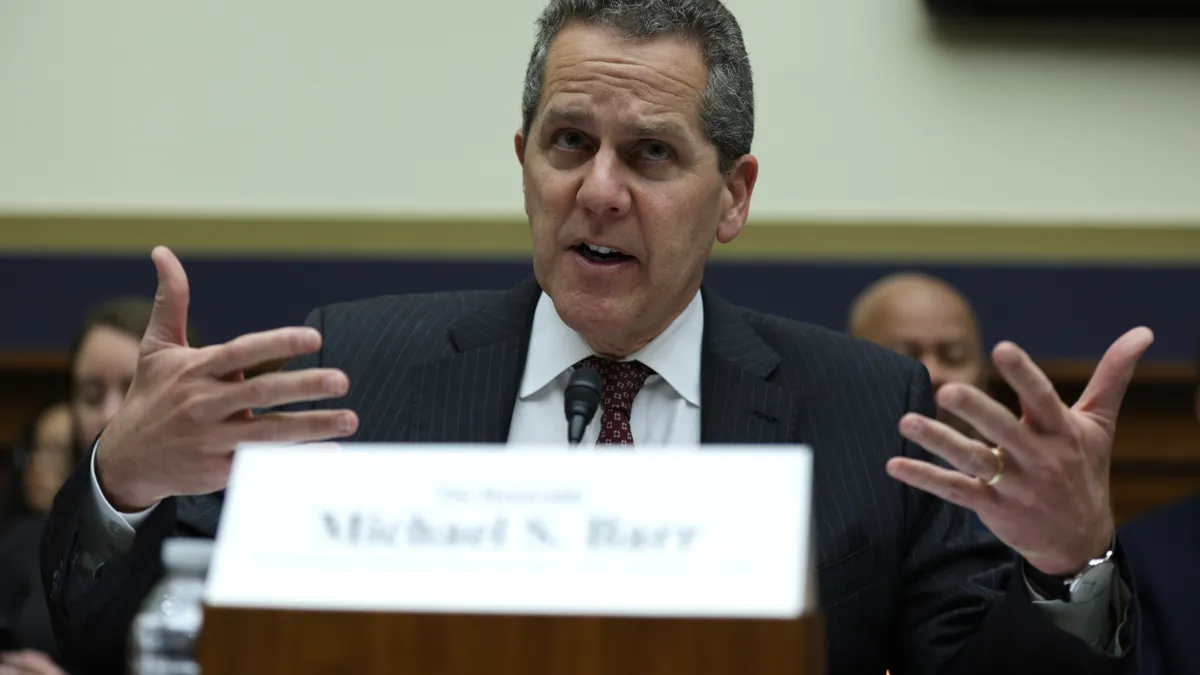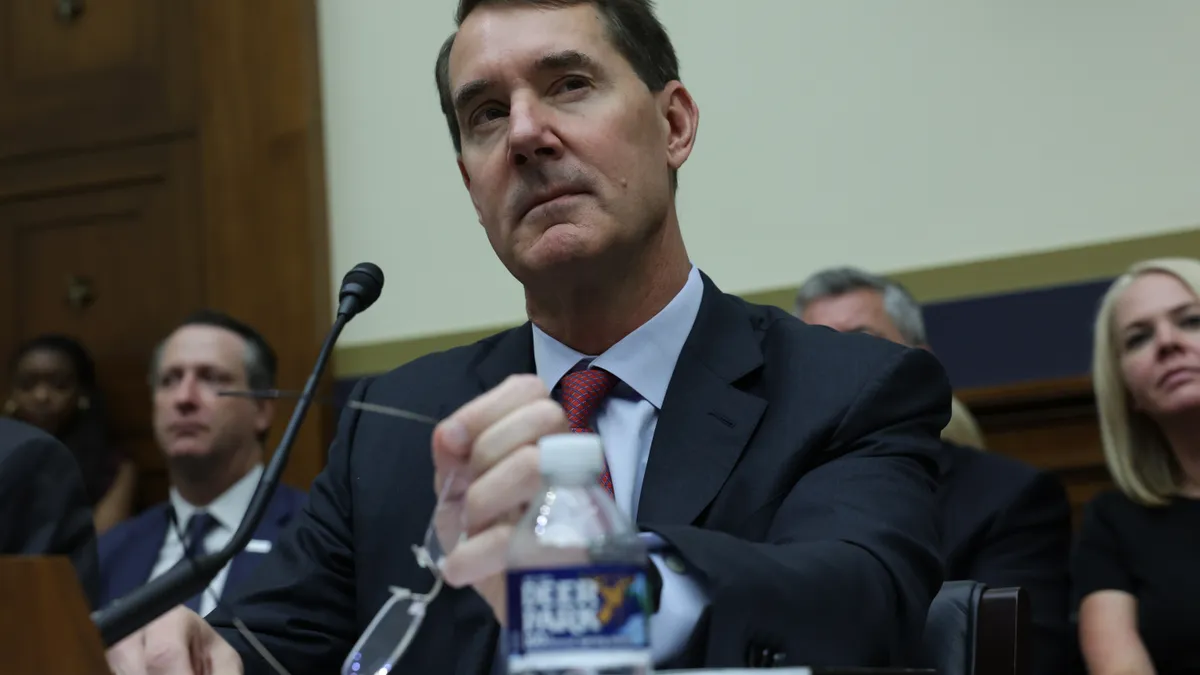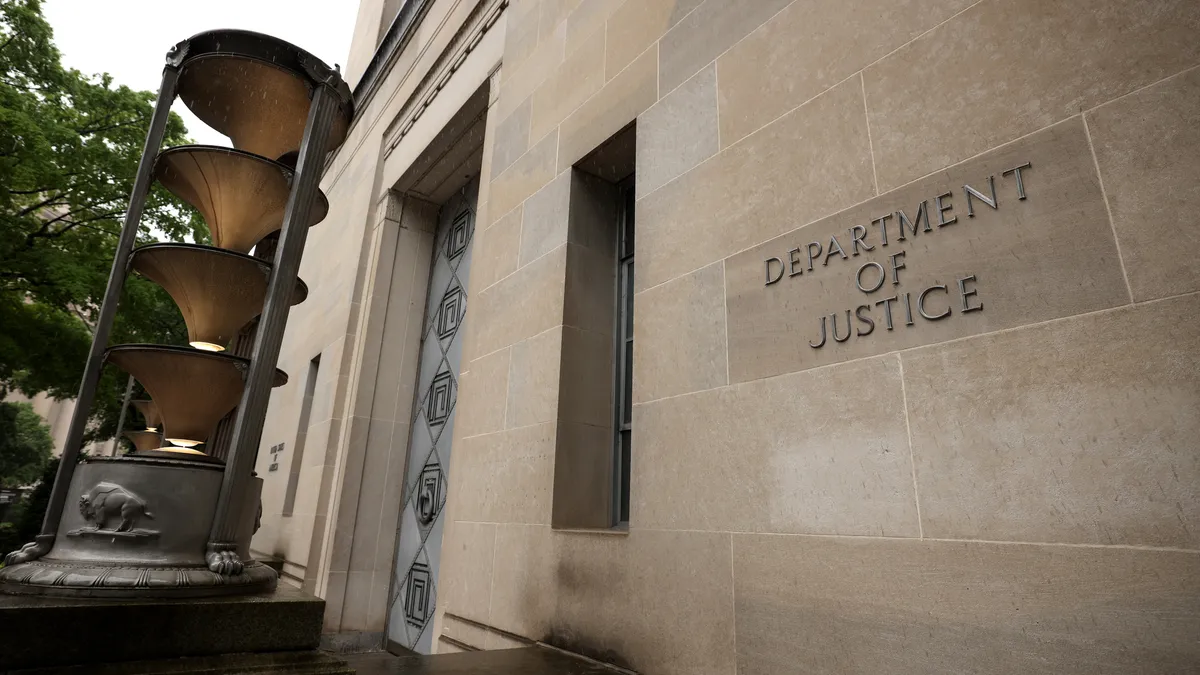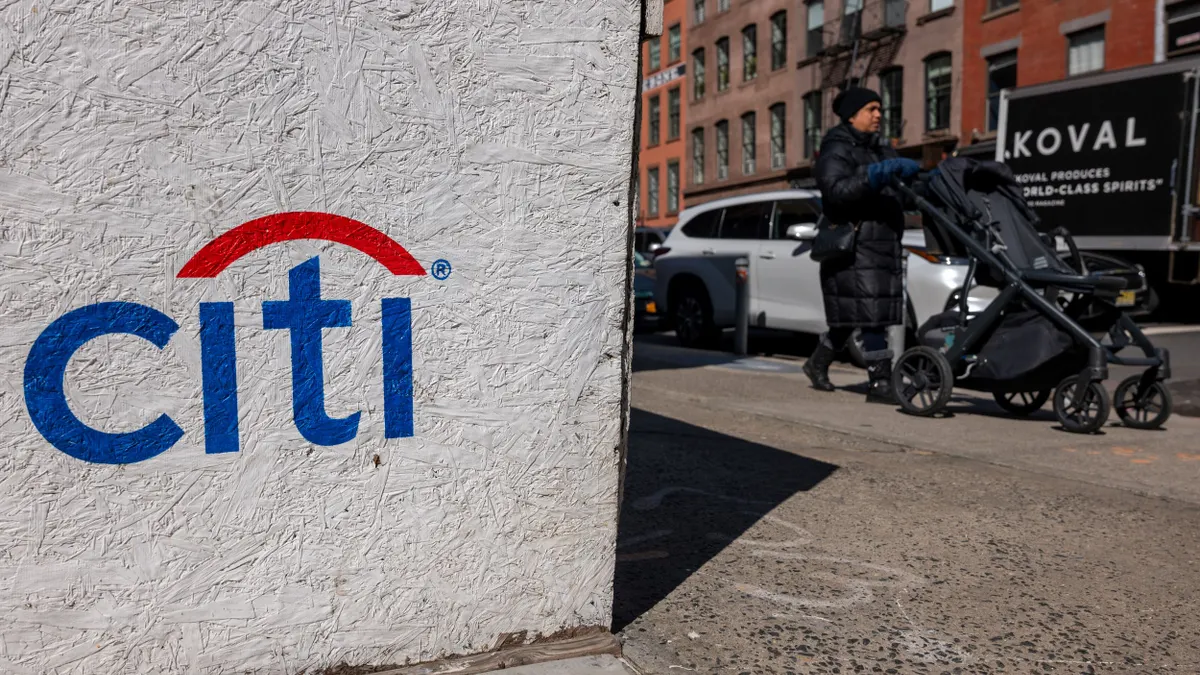The Federal Reserve’s Michael Barr will step down from his role as vice chair for supervision next month, the central bank said Monday.
Barr will exit that post by Feb. 28, or earlier if a successor is confirmed, according to a Fed news release, but will continue to serve as governor.
Barr, the Fed’s top bank regulator, has served as vice chair since July 2022; he submitted his letter of resignation to President Joe Biden.
Barr’s term as vice chair didn’t expire until July 2026, but those who’ve recently served in that position have resigned after a president from the opposing party wins an election. He was widely viewed as a potential target of the incoming Trump administration, and questions swirled as to whether the president-elect may try to oust Barr and whether Barr, in turn, could sue to keep his position.
“The position of vice chair for supervision was created after the Global Financial Crisis to create greater responsibility, transparency, and accountability for the Federal Reserve's supervision and regulation of the financial system,” Barr said in a statement Monday. “The risk of a dispute over the position could be a distraction from our mission. In the current environment, I've determined that I would be more effective in serving the American people from my role as governor.”
Barr’s term as Fed governor expires in January 2032. The most likely candidate to replace Barr as vice chair for supervision is Fed Gov. Michelle Bowman, given her qualifications, experience and Senate confirmation, Peter Dugas, executive director at consulting firm Capco, has told Banking Dive.
The Fed board “does not intend to take up any major rulemakings until a vice chair for supervision successor is confirmed,” the central bank said Monday.
Barr’s decision “seems designed to avoid a potential showdown with the incoming Trump administration,” wrote Brian Gardner, Stifel’s chief Washington policy strategist, in a Monday note.
An effort to remove Barr could also have set a precedent for a president to oust a Fed chair, Gardner said. “That issue has been averted for now.”
Barr’s move prompted both swift celebration and criticism. Sen. Tim Scott, R-S.C., said in a statement that Barr “failed to meet the responsibilities of his position,” from “his supervisory failures during the Spring 2023 bank failures to the disastrous Basel III Endgame proposal.”
“I stand ready to work with President Trump to ensure we have responsible financial regulators at the helm,” added Scott, the incoming chair of the Senate Banking Committee.
Others blasted the move rather than Barr’s record. The Fed vice chair’s “baseless capitulation to deregulation zealots will in fact destroy that mission quicker and more thoroughly than any dispute over the position,” said Dennis Kelleher, president, CEO and co-founder of nonprofit Better Markets, in a statement. “The entire mission and mandate of the Vice Chair for Supervision will now likely be a dead letter as a deregulator will undoubtedly be installed in that position.”
For banks, Barr’s resignation is a positive, Gardner said. With no opening on the Fed board, Trump must nominate someone currently on the board rather than an outsider; Gardner, too, sees Bowman as the likely pick, pointing to her dissents on some notable regulatory proposals during Barr’s tenure, such as the Basel III proposal.
That proposal, first floated in July 2023 and intended to get the U.S. aligned with Basel standards, would have increased the amount of capital the nation’s largest banks need to hold by about 19%. After strong industry backlash, Barr last September previewed changes lowering that to 9%. In light of Trump’s reelection, many believed the proposal in its current form to be dead, although bank CEOs have called for clarity.
Barr’s departure appears to be the final nail in the coffin for the current iteration of the proposal, Gardner wrote.
“Barr’s replacement could still work with the other agencies to propose a new B3 Endgame rule, but we think such a proposal would be capital-neutral industry-wide, which was an original goal of the B3 endgame process,” he wrote. “We expect [Bowman] would lead any B3 re-write in a different direction.”
Barr’s exit is also likely to mean “some behind the scenes relief immediately” when it comes to supervision, as well as a speedier consideration and approval process for mergers and acquisitions, especially among smaller and mid-sized banks, Gardner said.
It’s “difficult to fully discern” the mark Barr has left during his tenure as vice chair, given what occurred with the Basel III proposal and that it’s not easy to assess the actual impact his efforts to strengthen bank supervision may ultimately have, said Kathryn Judge, Harvey J. Goldschmid Professor of Law at Columbia University’s law school.
“The banking system today is probably more robust than it was when he was confirmed as vice chair, but nowhere near as robust as he hoped to leave it,” Judge said in an email.
Todd Baker, a senior fellow at the Richman Center for Business, Law and Public Policy at Columbia Business School and Columbia Law School, said Barr “worked effectively with the multiple parts of our complex bank regulatory system to resolve the costly midsized banking crisis that took place shortly after he took the job. He was less effective at herding the cats into agreement on the Basel III endgame, but fading memories of 2008 and a reinvigorated bank lobby made that job particularly difficult.”






















